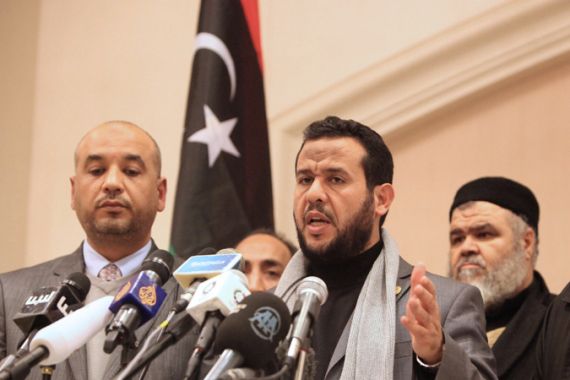
Can Libya’s armed groups be disbanded?
Dealing with armed groups of former revolutionary fighters may be the most serious problem facing the new leadership.
On Tuesday, fierce fighting erupted in Libya’s capital, Tripoli, between the city’s rebels and those from Misrata. At least four fighters were killed and five others injured.
A member of the Tripoli Military Council said the clashes were triggered by the arrest of a Misrata fighter in Tripoli. But a Libyan official said the clashes were over control of a building that previously housed an intelligence centre under Muammar Gaddafi, the former Libyan leader.
|
“The Libyan authorities must develop, not just a vision for the armed forces as the new army chief has suggested, but a vision for the entire country – Daniel Korski, a senior policy fellow |
Observers say disbanding disparate armed groups of former revolutionary fighters is one of the most serious and immediate problems facing Libya’s new leadership.
Tuesday’s fighting was not the first of its kind. In November, dozens of fighters clashed at a Tripoli hospital in what residents said was the biggest armed confrontation in the city since the war ended.
In December, Abdulraheem El-Keib, the head of Libya’s interim government, held a meeting on the infighting.
Rebels were given a December 20 deadline to leave the capital, and although they have already dismantled most of their checkpoints, some key bases still remain.
The armed groups feel that the approximately $100bn worth of still-frozen assets should be shared among power-wielding groups, making it a real challenge for the Libyan authorities to move on disbanding them.
Meanwhile, Libya’s interim government has named Yousef Mangoush, a retired general from the anti-Gaddafi bastion in Misrata, as the head of the armed forces. It is the first significant move to build a new Libyan military.
Mangoush says the army he is looking at will be one that focuses on quality rather than numbers, but what will this mean for the country’s future?
How can the Libyan government end the presence of armed groups on the streets? And how difficult is the challenge facing the authorities?
Inside Story, with presenter Hazem Sika, discusses with guests: Daniel Korski, a senior policy fellow at the European Council on Foreign Relations; Waheed Burshan, a member of Libya’s National Transitional Council and part of the Stabilisation Team; and Sameh Seif Elyazal, a retired army general and expert on national security and intelligence issues, who is also the director of the Egyptian Institute for Strategic Studies.
|
“Since the liberation of Tripoli the government has engaged in a multi-phased process to encourage militias to either leave the city or integrate into official military or law enforcement bodies.” Abdulraheem El-Keib, the head of Libya’s interim government |